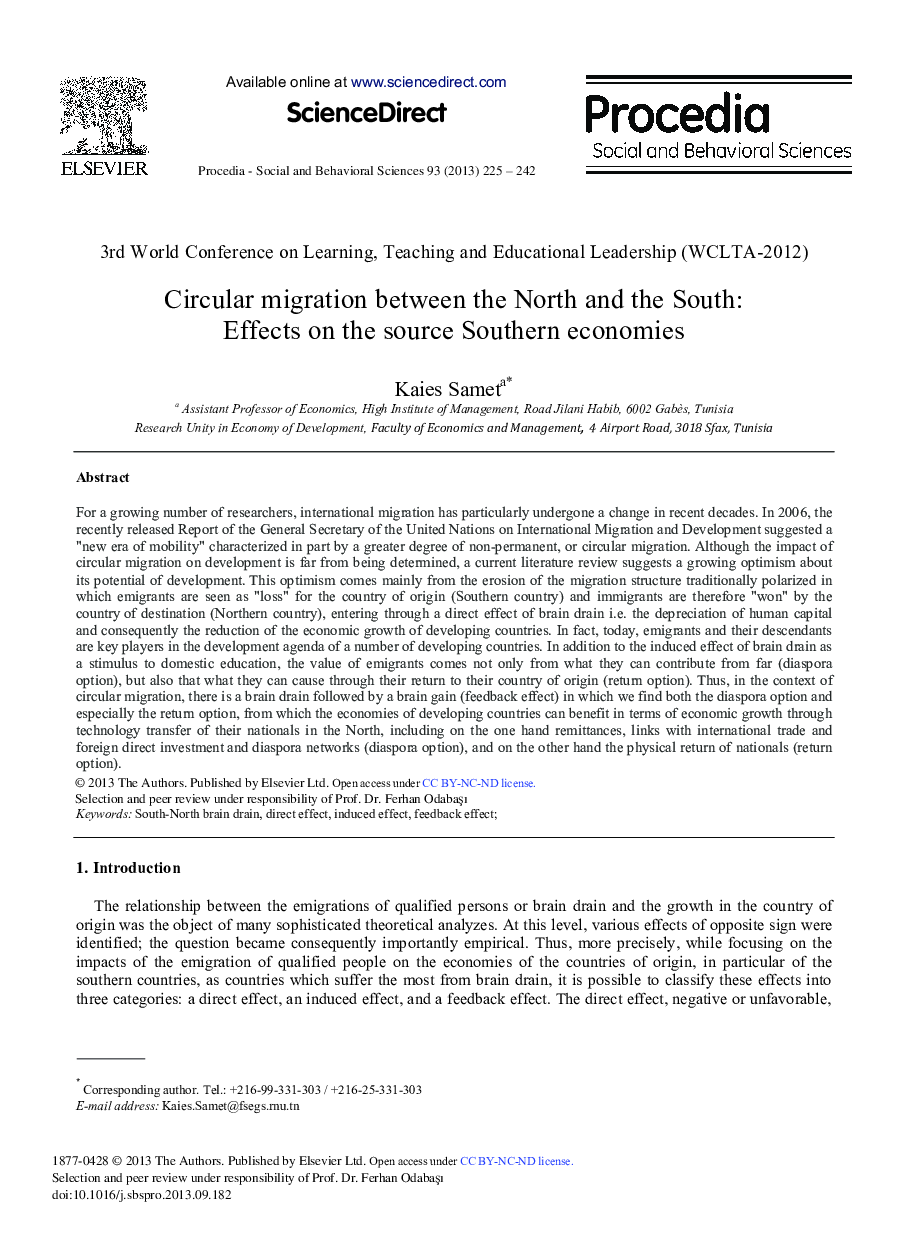| Article ID | Journal | Published Year | Pages | File Type |
|---|---|---|---|---|
| 1117381 | Procedia - Social and Behavioral Sciences | 2013 | 18 Pages |
For a growing number of researchers, international migration has particularly undergone a change in recent decades. In 2006, the recently released Report of the General Secretary of the United Nations on International Migration and Development suggested a “new era of mobility” characterized in part by a greater degree of non-permanent, or circular migration. Although the impact of circular migration on development is far from being determined, a current literature review suggests a growing optimism about its potential of development. This optimism comes mainly from the erosion of the migration structure traditionally polarized in which emigrants are seen as “loss” for the country of origin (Southern country) and immigrants are therefore “won” by the country of destination (Northern country), entering through a direct effect of brain drain i.e. the depreciation of human capital and consequently the reduction of the economic growth of developing countries. In fact, today, emigrants and their descendants are key players in the development agenda of a number of developing countries. In addition to the induced effect of brain drain as a stimulus to domestic education, the value of emigrants comes not only from what they can contribute from far (diaspora option), but also that what they can cause through their return to their country of origin (return option). Thus, in the context of circular migration, there is a brain drain followed by a brain gain (feedback effect) in which we find both the diaspora option and especially the return option, from which the economies of developing countries can benefit in terms of economic growth through technology transfer of their nationals in the North, including on the one hand remittances, links with international trade and foreign direct investment and diaspora networks (diaspora option), and on the other hand the physical return of nationals (return option).
